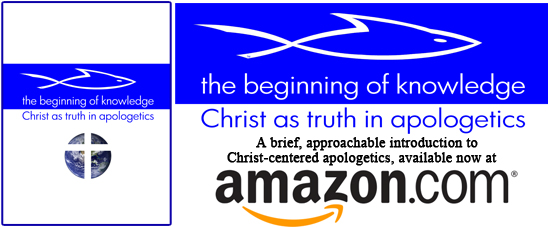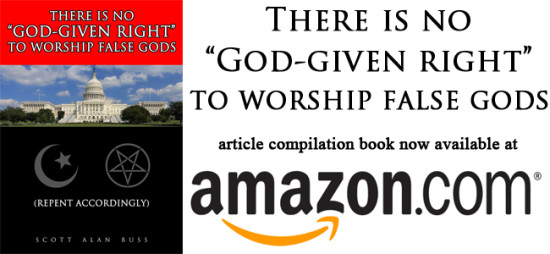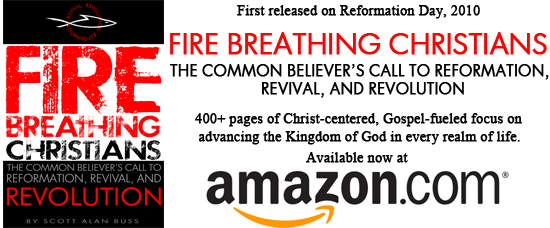
Why do we imagine?
Why do we fantasize?
What is healthy fantasy?
What is unhealthy fantasy?
How do we determine the difference between the two and live in light of that distinction?
How do we understand and interact with things like Star Wars, The Lord of the Rings, Star Trek, The Chronicles of Narnia or The Hobbit?
How do we pursue or avoid fantasy as it is presented to us in God’s creation in a manner most glorifying to Him and therefore more beneficial to us?
The answers to these questions, as all others, are rooted in the Nature of God as revealed in His Word.
One label that’s often slapped onto the realm of fantasy by those who (intentionally or not) tend to tag the whole category as inherently bad is that of “escapism”. The idea usually attached to such an approach is that fantasy is inherently escapist and therefore inherently detrimental to spiritual growth and maturity. Thus, it is to be condemned and avoided.
First off, let’s be plain that escapism, insofar as it encourages disengagement from reality, is indeed detrimental. It is bad thing. Any pursuit undertaken to avoid or escape our duty to actively strive to take every conscious thought (and thereby every physical action) captive to Christ (in accordance with 2 Corinthians 10:5) is a pursuit that is, as we elaborated upon in late week’s post on gaming, theologically unsound. It is counter-Christian. It is anti-Gospel and anti-Great Commission.
So yeah, it’s a pretty big deal.
This sort of escapism is antithetical to the Christian worldview and life in practice. It is also (and not so coincidentally) a core component of the sorts of fantasy, sports, sci-fi, gaming, television, music, film and art that now dominates and defines our smoldering wreck of a culture.
Secondly, it’s important to correct some very serious overreach by many of those who would tag fantasy as inherently detrimental by reminding them that fantasy (as rightly understood) is a part of reality. More specifically, God has purposefully designed His creation so that fantasy when properly pursued is yet another means by which He has been pleased to reveal aspects of His Nature to and through His people.
So fantasy is inherently wrong?
No.
Not at all.
It’s very often dramatically corrupted, as is the case with pretty much everything else that sinful man has touched since the fall, but it is not inherently evil. It is very much one of the “all things” that are even now being reconciled to Christ by the power of His work on the cross through His Gospel-fueled Great Commission (see: Colossians 1:15-20 and Matthew 28:18-20).
So if fantasy isn’t inherently wrong (in the biblically unlawful sense) in some instances or forms of practice, are those instances of lawful fantasy necessarily profitable or helpful in the pursuit of true knowledge, growth and conformity with Christ? Are there approaches to fantasy that can and do glorify God and encourage us in a positive direction toward spiritual (and thereby “real world”) growth and maturity so that we might know the Nature of God more accurately and thereby pursue Him more rightly in His creation as we’ve been lovingly commanded and equipped to do?
Put another way, can fantasy in practice exalt God and thereby deepen our understanding, pursuit and application of His Nature throughout His creation?
One way of answering these important questions from Scripture is to notice the manner in which God has chosen to communicate truth about His Nature to us through His Word – a perfect, sufficient Word that often employs fantastic illustrations, fantastic characters, and fantastic (yet still totally true) stories.
There are dragons, demons, witches, angels, sorcerers, talking animals and all manner of fantastic characters involved, each of whom have been perfectly employed by God to tell us things about His plans, purposes, and Nature.
There are staffs turning into snakes (which then eat each other), there are vast bodies of water turning to blood, there are massive plagues, there are pillars of fire, there are battles between angels and demons, and all manner of fantastic means by which God has spoken (and continues to speak) of His Nature to His people in His Word.
Obviously, there are books worth of material that could be devoted to clarifying and understanding the many fantastic elements contained in Scripture and what they mean in application here and now for us. While I’d like to get around to writing such a book someday soon, Lord willing, for now let me just try to make two quick points before moving on:
- Fantasy, like myth, does not necessarily mean untrue or unreal. Fantastic tales and mythologies can indeed contain very real and very true characters, encompass very real historic events, and convey biblically sound truths.
. - The fact of God’s purposeful use of sometimes very dark characters and situations is not to be confused or contorted into God (or His people) in any way or at any time legitimizing evil actors or evil acts themselves. One apparent purpose of God using these darker elements as He does is to craft the dark backdrop upon which He juxtaposes the shining, bright beauty of His attributes. There is much more to say on this, of course, and I hope to tackle this area in some detail in the Part 2 follow up to last week’s post on gaming, but for now I hope that the notion of God’s purposeful use of dark figures and dramatic stories featuring many fantastic components can at the very least be seen as confirmation that the use of such things in such a manner can indeed be profitable, and perfectly so.
One of the primary means by which we can test for the profitability of a thing is the motive by which it is being presented or pursued.
Motive is everything.
Having examined the critical concept of motive some detail in last week’s Every Game Captive: The Christian Call to Christ-Centered Gaming (Part 1), it might be helpful to re-share some of those thoughts here (with gaming sometimes replaced by fantasy):
Motive – As Scripture makes plain, the motive of one’s heart is critical (see: Matthew 15:18 and Luke 6:45). Motive is everything, and only the saving grace of God in us can provide us with the pure motives necessary to pursue truly Christ-centered actions. When we pursue things from a Christ-centered motive, we will inherently strive to better know and more accurately conform everything that we think, do, and touch to His Nature as revealed in His Word.
.
In this context it is vital to ask (and continue asking as we go along) the question: Why am I doing this? Why am I making or watching this movie? Why am I writing or reading this book? Why am I creating or playing this game?
.
We need to earnestly seek the truth in these vital matters of motive. We must pray without ceasing for guidance and clarity along the way, knowing that even an adventure begun with pure motives can slide off the tracks into self-serving, sinful pursuits when we allow our eyes, hearts or minds to stray.
.
As for specific games, it is important to note that we are not constrained by what we may think (or even know) about the motives of those who crafted the particular game that we might be considering or playing, and we should not constrain others in a similar fashion. The fact that a particular game may have been made by unbelievers for self-serving, Christ-dismissing reasons in no way renders the game “untouchable” to us or irredeemable as a potentially profitable means by which God’s true Nature might be well observed and contemplated. While some games may require more filtering and adjustment than others, we should be slow to write any game off as a total waste of time or as an irredeemable piece of junk.
.
That said, we must always be mindful of the whole context of any given situation. For example: Immature Christians (those with weak or shallow theology) or those prone to particular temptations associated with any particular game [or fantasy setting] ought not be encouraged to engage with them until their theology deepens and they sufficiently mature. Immature Christians and people with weak or even rotten theology cannot be expected to rightly understand, much less appreciate or apply, the essential component of a biblical motive in gaming [or fantasy in general]. In order to rightly assess the motive(s) of a game’s creator and appropriate correct them by any means available (we will cover this more later), one must have a firm biblical foundation from which to work.
.
There isn’t (and will never be) any way around that.
.
Christians must pursue and achieve a measure of spiritual depth and maturity before they will be able to rightly understand gaming [or fantasy in general].
.
This might seem counter-intuitive, especially in light of passages like 1 Corinthians 13:22, which reads: “When I was a child, I spoke like a child, I thought like a child, I reasoned like a child. When I became a man, I gave up childish ways.”
.
To assume that this passage is directly aimed at things like games is not only baseless, but backwards, and dangerously so.
.
The passage in which this verse appears makes it plain that it is not addressing “childish things” like games or toys. It’s addressing the childishness of our simple, small view of things on this side of eternity. It’s addressing how we see things so dimly from our flawed, fallen human perspectives.
A childish Christian worldview is a worldview in which the Gospel is very small and limited. In contrast to this childish condition, thinking like a mature Christian man or woman inspires awe and a sense of great purpose at the revelation that everything belongs to Christ and is being reconciled to Him even now by His grace through His People pursuing His Gospel-fueled Great Commission, and that of the many amazing things made to reveal and revel in the Nature of Christ in His creation is the creation of [fantasy].
.
This mind-blowingly beautiful reality should be the core upon which we strive to settle and secure our motive in all [fantasy] related pursuits.
.
With this critical concept embraced, let’s move on to a discussion of purpose in [fantasy]…
So what is our motive?
What is our motive in pursuing fantasy?
Are we aiming to escape from reality – a reality that is quite literally a purposeful reflection of the Nature of the God who created and defines all of it? Or are we aiming to embrace the infinitely beautiful and vibrant reality that God has crafted and charged us to engage and explore eternally (starting right now), all to His glory and all to our benefit?
In other words: Are we aiming to escape or evade our God-given, Gospel-fueled Great Commission mandate to take every thought and thereby every action completely captive to Christ? Or are we aiming to more rightly honor and more capably exalt His Nature by better understanding it through the Christ-centered pursuit and application of God’s creation of fantasy?
This “exaltation vs. escapism” question seemed important to flesh out a bit in-between last week’s Part 1 and the (hopefully sometime soon coming) Part 2 on gaming. It also seemed worthy of a stand alone post, which is why I wanted to share it with you this way now.
Every fantasy book, film, story, setting, character and concept is telling us something about God.
It’s our job to know when those things are true, to recognize when they are not, and to correct accordingly as we go about the God-given mission of conforming everything – including fantasy – to the Nature of Christ.
If you know of anyone who might appreciate this post, please share it. If you’d like to see articles like this continue, please click here to help.
Please also “like” us on Facebook, “+” us on Google+, follow us on Twitter and feel free to sign up for new articles by email using the buttons in the upper right corner of the FBC home page.
Please check out The Fire Breathing Christian Podcast too, as well as the latest designs at Fire Breathing Tees and the latest memes at the Fire Breathing Memes page.
You can also help support the Fire Breathing Christian mission by checking out these books:
The Beginning of Knowledge: Christ as Truth in Apologetics is an approachable, easy to read introduction to Christ-centered apologetics:
 _____________________________________________________
_____________________________________________________
Apathetic Christianity: The Zombie Religion of American Churchianity explores the tragic true horror story of all-American dead religion masquerading as Christianity:
_____________________________________________________
On Education is a compilation of some of the most provocative and compelling Fire Breathing Christian articles on the subject of children’s education:
_____________________________________________________
There Is No “God-Given Right” To Worship False Gods is a compilation of some of the most provocative Fire Breathing Christian articles on the subject of America’s embrace of a satanic approach to religious liberty:
_____________________________________________________
Fire Breathing Christians – The Common Believer’s Call to Reformation, Revival, and Revolution is the book that first presented the FBC mission to apply the Gospel-fueled Great Commission in every realm of God’s creation:
_____________________________________________________
An alternate white cover version of Fire Breathing Christians is available:
_____________________________________________________
There is also an alternate black cover version of Fire Breathing Christians:
Finally, here are a few good intro/reminder links for those of you who are new to Fire Breathing Christian and curious about exactly what’s goin’ on ’round here:
What are you, some kind of [insert label here] or something?!
What’s with that shark-fishie graphic thing?
Intro to Fire: The Power and Purpose of the Common Believer
When the Bible gets hairy. (Or: Is it right for men to have long hair?)
And especially this one: Never forget that apart from God’s grace you and I are complete morons.
Thank you for your support!











So glad you addressed this topic, Scott.
I am tired…so tired…of seeing witches and evil in all sorts of movies achieving "victory" with the general feeling (lie) being that God can't do anything to stop it.
Horse manure!
It's time people started seeing God's people gaining victory over witches, demons, fallen angels, etc. in books and on the big screen.
To that end I've started writing stories with this very thing in mind. The first short story in what I plan to make a series titled "Children of Wrath: A Witch Killer Story" is only the beginning.
God bless you and your family, Scott.
Thank you for expounding on this subject and I absolutely agree with just about everything you say. There are just a few questions I have which I believe you have not addressed as yet, but maybe will in your second article. One is the use of time. How much time should be devoted to such immersion in fantasy either by book or screen? I am expecting no more than a guideline, not a strict prescription, but considering the fact that our time allocation has not increased, we still only have 24 hours in one day and even though labor saving technology has made many things easier, other things of a more superficial nature and may I add of a less productive nature attempt to fill the time saved. Therefore the whole aspect of shifting priorities is something which we as a culture are still coming to terms with I believe. The other thing is isolation. Where as a book is something we can discuss with family and friends, the screen more often than not requires isolation of the person, the result being a greater engagement with virtual reality. That concerns me greatly as it tends to not only lead to fragmentation of family and friendships, but also to a reduction of productivity and service to others for example; volunteering, attention-span, and memory retention, are on the decline. But as I said, I agree with your assessment of fantasy as to what it should be and would like to finish with a Tolkien quote I like.
“I have claimed that Escape is one of the main functions of fairy-stories, and since I do not disapprove of them, it is plain that I do not accept the tone of scorn or pity with which 'Escape' is now so often used. Why should a man be scorned if, finding himself in prison, he tries to get out and go home? Or if he cannot do so, he thinks and talks about other topics than jailers and prison-walls?”
― J.R.R. Tolkien (On Fairy-Stories)
Many blessings Ursula Bennett